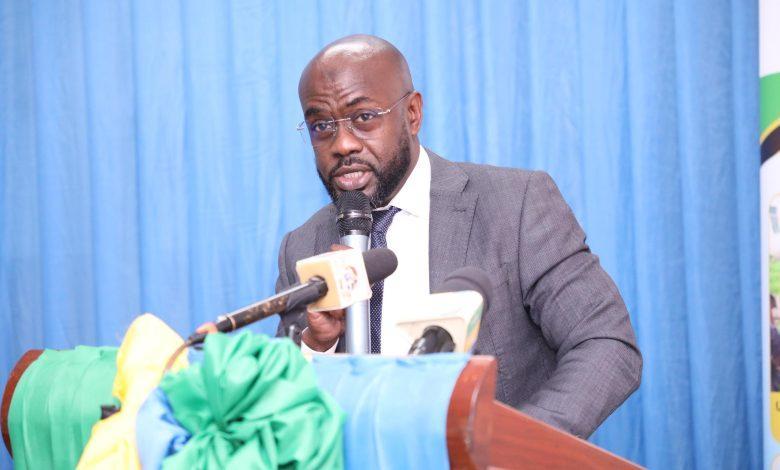Africa-Press – Tanzania. THE Institute of Adult Education (IAE) has been urged to ensure its strategies and programmes, particularly in Adult and Non-Formal Education (ANFE), are aligned with the Tanzania Development Vision (TDV) 2050, as the nation pushes forward efforts to equip citizens with life skills and knowledge for a better future.
The call was made by the Deputy Permanent Secretary in the Ministry of Education, Science and Technology, Dr Hussein Mohamed Omar, when officiating the opening of a capacity-building training for prison officers and adult education experts today in Dodoma, ahead of the IAE’s 50th anniversary celebrations.
Dr Omar, who represented the Ministry’s Permanent Secretary, said that Vision 2050, officially launched recently, places strong emphasis on human capability and social development under its second pillar.
“The vision underscores the importance of skills, life competencies, freedom of choice, decision-making and utilisation of opportunities to enable every citizen to live a decent life. Therefore, all adult and non-formal education programmes must be tailored to support this direction,” he noted.
He further recommended that the IAE incorporate subjects such as adult psychology and financial literacy — including practical saving and borrowing techniques — to help protect learners from falling victim to exploitative loan schemes known locally as ‘Kausha Damu’, which often hinder their progress and discourage long-term goals.
Dr Omar also urged the IAE to collaborate closely with the President’s Office – Regional Administration and Local Government (PO-RALG) and the Ministry of Education to strengthen all identified adult learning centres within primary schools, as stipulated in the Education Act of 1978.
“According to the 2022 Population and Housing Census, Dodoma Region alone has 23.7 per cent of its population lacking basic literacy skills. It is therefore critical to identify these individuals and create enabling environments for them to acquire such skills and improve their economic prospects,” he said.
Moreover, Dr Hussein called on the institute to conduct in-depth research on the reasons behind the low literacy rates in regions such as Simiyu, Tabora, Katavi, Rukwa and Dodoma, and to design interventions that are suitable to the unique needs of each region.
He also encouraged inmates to embrace the adult education programmes offered through the Ministry of Education, Science and Technology initiative under IAE, assuring them that the literacy and vocational skills gained will help them reintegrate into society as productive and law-abiding citizens once they complete their sentences.
“The primary goal of these correctional education programmes is to reform behaviour and support inmates to become self-reliant and contribute to national development,” he said.
For his part, the Director General of the Institute of Adult Education, Prof Philipo Sanga, reaffirmed the institute’s commitment to supporting the government’s strategic efforts to reduce the number of citizens lacking basic literacy — reading, writing, and arithmetic (3Rs) and other key competencies.
“ IAE will continue promoting life skills, entrepreneurship, technical and vocational skills, and all forms of productive knowledge required to help the country attain upper middle-income status as envisioned in Vision 2050, which emphasises access to lifelong learning,” he stated.
He said the institute, now marking 50 years since its establishment, is committed to reaching all target groups, including inmates in correctional centres, by modernising adult literacy activities in line with the Education and Training Policy, which prioritises vocational and practical training.
For More News And Analysis About Tanzania Follow Africa-Press







